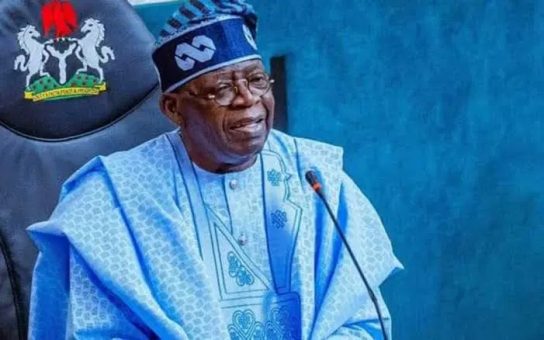President Bola Ahmed Tinubu has reiterated his administration’s firm resolve to tackle rising inflation and entrench a culture of transparency and accountability in Nigeria’s fiscal governance structure. He made this known on Monday while declaring open the National Conference on Fiscal Governance, Transparency and Accountability in Abuja.
The three-day national event, convened by the Public Accounts Committee of the National Assembly, brought together key stakeholders across government, development partners, and civil society to deliberate on strengthening public financial management in the country.
Speaking through the Minister of State for Finance, Dr. Doris Uzoka-Anite, President Tinubu emphasised that reducing inflation remains a top priority for his government. He pointed out that long-term economic stability can only be achieved through disciplined public spending, structural reforms, and inclusive governance.
The president disclosed that his administration is currently implementing measures aimed at reinforcing transparency across all arms of government. These include bolstering the capacity of the Office of the Auditor-General, enhancing openness in public procurement processes, and accelerating the deployment of digital tools in the management of public funds.
According to him, “Every naira spent must be traceable, and those who manage public resources must be held accountable. Transparency is not a luxury—it is a necessity for the survival and progress of our country.”
President Tinubu also noted that curbing inflation requires addressing the fundamental issues hampering food production and distribution across the country. He added that eliminating wasteful government expenditure is crucial to restoring investor confidence and ensuring sustainable growth.
He urged lawmakers and oversight bodies to approach their responsibilities with a sense of national duty, stressing that fiscal oversight should be viewed as a patriotic act rather than a political exercise.
“Good governance thrives when there is active participation from all sectors,” he said, calling on civil society organisations, the media, and ordinary Nigerians to remain vigilant and demand accountability from public officials.
Also speaking at the event, the British High Commissioner to Nigeria, Richard Montgomery—represented by William Robinson—commended the Nigerian government for recent economic reforms such as the removal of the fuel subsidy and efforts to broaden the tax base. He expressed the UK’s readiness to support Nigeria in deepening fiscal governance but maintained that real transformation hinges on the principles of transparency, accountability, and strong civic engagement.
Montgomery further encouraged Nigeria to embrace innovation and digital solutions in public finance management, saying that such steps would enhance efficiency and public trust.
